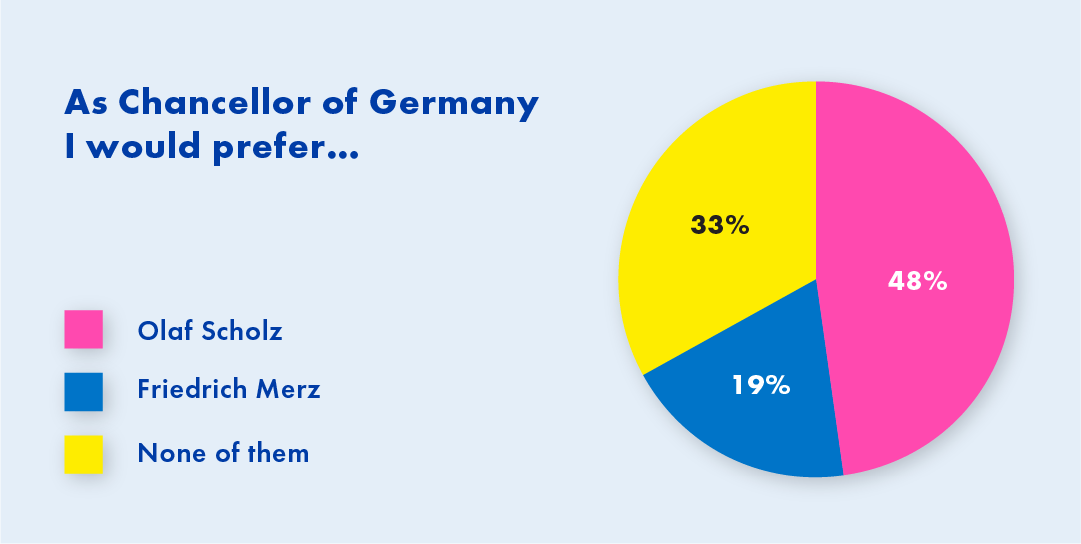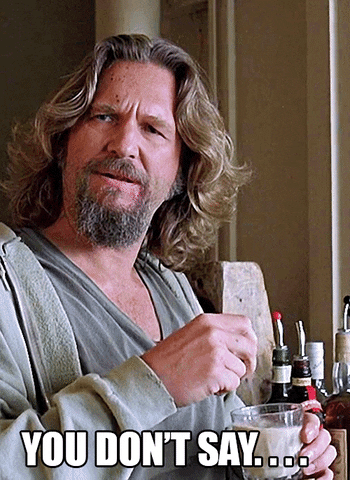Issue #71
Guten Morgen!
This week was full of highs and lows in the European and German political arenas, and we’ve bundled the highlights for you all in one place. Take a look below to hear how Friedrich Merz is bringing a new flame to Merkel’s CDU, how Russia is trying to find a back door through Italy, and why the German G7 Presidency Program has Mats up in arms. Finally, Anna is feeling slightly optimistic about the CDU as Merz proves himself to be the comeback kid in her WOOM below. Happy reading!


Anna Christian
FIRST, SOME SOLID INTEL:
Retain the Darkness
Let’s set aside politics for a moment. As you are probably aware of, also in Germany the 27th of January is the commemoration day for the countless Jewish victims of the Nazi regime during the Shoah. Every year, the German parliament remembers this horrible tragedy through an hour of commemoration. This year, the Bundestag hosted Shoah survivor Inge Auerbacher and the President of the Israelian Parliament Mickey Levey. Both gave moving speeches and we want to use this article to repeat their most important messages.
Auerbacher made it possible to realize the tragedy and anguish of the Jewish people by telling her own personal story during the Shoah: how she lost big parts of her family, how she survived the concentration camp Theresienstadt, how her family immigrated to New York after the war ended and how the scars and the trauma of these dark times influenced her whole life afterwards. She let the German parliamentarians know about the meaning of her pin, a butterfly, and why it is a symbol for 1.5 million murdered Jewish children. Mickey Levey reaffirmed to the close cooperation between Israel and Germany and the importance of all the work done to reach a better future, to prevent pain and suffering from ever happening again. Both, Levy and Auerbacher, received minutes of respectful applause and clearly everyone in the audience was moved by their powerful speeches.
We want to close with some words of Inge Auerbacher: “My deepest wish is the reconciliation of all people. […] Light up a candle for life and to retain the darkness for that the past shall never be forgotten.”
Merz Is Heating Up
Friedrich Merz’s election as the new head of the CDU was confirmed last weekend at the party convention. On Thursday, he made a second step towards power. He met with parliamentary group leader Ralph Brinkhaus (can be compared to the US Senate minority leader) and convinced him to step down so he can take over. The decision needs to be made by the CDU/CSU parliamentarians, but this will be only a formality next week. With that, Merz has the full arsenal of party and parliamentary group lead at his disposal. And in the last days we could observe that he’s got a fire inside of him.
Federal Chancellor Scholz (SPD) seems phlegmatic in the whole Ukraine-Russia conflict, he hasn’t made clear statements and Merz is there to call him out on his passivity. Merz’s role as an opposition leader could become spicy as long as the Chancellor decides to leave foreign policy to Foreign Policy Minister Baerbock (Greens), who btw defended her boss Scholz. Merz is hungry for attacks. But he also must deal with internal quarrels. He was able to reach the leadership of his parliamentary group without a public fight for power. Still, the CDU desperately needs a new agenda, new policy contents and some fresh faces in the second row. This is all Merz’s job now. And with all the power in his hands, he doesn’t have an excuse, should he not succeed. The first critical gauge will be the state elections taking place this year where the CDU is at risk of losing for instance their governing position in Germany’s most populated federal state North-Rhine Westphalia. Merz might think about the counter argument to his speech in the Bundestag by his colleague and SPD party leader Lars Klingbeil who said to Merz: “Foreign policy shouldn’t serve the self-discovery of the new opposition.” Even though, Merz landed a win by his attack on Scholz, he will need to focus on the bigger picture and his party in the coming weeks. We are excited and will keep you posted.
The Italian Back Door into Europe
Following last week’s uproar about Silvio Berlusconi’s potential run for President (update: he decided not to run), we’re back in Italy again to talk about Vladimir Putin of all people. We’ll set the scene: Both the US and the EU have threatened to impose harsh sanctions in the case of military action against Ukraine, but many European countries have one, glaring weak spot: dependence on Russian gas. Sanctions against Putin and his regime could lead to massive supply problems as global gas prices soar and many EU citizens depend on Russian gas to heat their homes. Despite all this, EU leaders seem to present a united front. Until Putin saw a potential weak link in the chain in Italy, as Russia was the country’s fifth largest trading partner in 2020, and trade between the two countries saw a 44 percent uptick in the past year. Also, and likely equally as important, when Russia invaded the Crimean Peninsula in 2014, Italian business executives put pressure on their government to “go easy” on Moscow.
All these factors culminated in a meeting on Wednesday between around 20 companies and Putin himself. Italian Prime Minister Mario Draghi tried everything he could, urging the hosts, the Italian-Russian business committee, to cancel the event, pleading state-controlled companies not to attend, but all to no avail. Within Italy, lawmakers were enraged, giving off great soundbites like, “You can’t put industry on one side and foreign policy on another,” or that these actions “undermine the transatlantic reliability of Italy.” Either way, the meeting happened and that can’t be undone. Rather, politicians should focus their efforts on a similar situation, as German executives are planning the exact same format with Putin in early March. You’ll surely hear from us then.
TAKE A BREAK, GIVE YOUR EYES A REST.

Source: Twitter @Wahlen_DE | Forsa, RTL, n-tv
THE HOUSE’S VIEW: by Mats
German G7 Presidency: Time for a New Approach?
At the beginning of 2022, Germany took over the G7 Presidency from the UK and this week German Chancellor Olaf Scholz’s (SPD) government revealed its political agenda for this inter-governmental political forum. While some of you are surely dying to find out what Germany has planned, I imagine some of you are asking yourselves, “wait… what is the G7 again?” And we wouldn’t blame you.
More Gs than in Space: Making Sense of the Different International Constellations
When global leaders decided to cooperate on key issues facing the global citizenry in different constellations, creative naming was obviously not a top priority. Hence, unfortunately for all of us, the format remained the same: the letter G followed by a number. Let’s quickly explain these so we’re all on the same page. First, there’s the G20. As the number implies, it’s the world’s 20 largest economies and the format focuses mainly on topics of international economic and financial cooperation. (Summits are also often accompanied by protests, just ask Jonny about what happened in his neighborhood in 2017). Then there’s the G10, made up of 11 (?) industrial countries, closely tied to the activities of the World Bank and the International Monetary Fund (IMF). Essentially, these countries allow the IMF to borrow limited amounts of money from their central banks when funds are tight. Next, we have the G8, which no longer exists, as Russia invaded Crimea in 2014 and had its G-Status removed, leading to our topic of the day: the G7. The format started as an informal gathering of Finance Ministers of the world’s wealthiest liberal democracies and has since ballooned into a high-level format between heads of government discussing major global issues from taxation to geopolitics. Great, now that’s out of the way, let’s take a look at Germany’s plans.
5 Foci, but Only Because They Had to
Officially, Germany has five main areas of focus in their program for the presidency: the environment, economic stability, health policy, investments in a better future, and strong togetherness. These are laid out over 13 pages. While the first three seem like very legitimate goals, I can’t help but feel like the last two were the equivalent of filling in “C” for all remaining questions when exam time is running out. But I’ll try not to be too cynical. Here’s the elevator-pitch version of Germany’s priorities. First and foremost, Scholz and co. will be focusing on combatting climate change. The program speaks of moving “from ambition to implementation,” and Germany is certainly practicing what it’s preaching domestically by factoring climate change into almost every economic sector. Let’s see if other countries are coming along for the ride. Priority number two will surely be Scholz’s pet project, implementation of a global minimum corporate tax. In the program it says Germany will “ensure [the agreements made] will be implemented on time.” Thirdly, and particularly in the current geopolitical climate, Scholz’s government wants to ensure that G7 countries take a clear, united position on what the program calls “international crises.” For those of you dying to find out more about what is planned, the full program can be found here.
The House’s View
After years of promises, accords, agreements, pacts, and treaties, my motto is: I’ll believe it when I see it. Agreements in the G7 constellation are not binding because there is no legal entity that can enforce agreed-upon measures. Historically, these meetings have been useful in finding some sort of alignment and trying to move in (somewhat) the same direction. Given the gravity of global problems we face today, I think it’s fair to ask the question: does this format still fit the political Zeitgeist? My answer: no. Most of the major issues we face today such as climate change, global debt, and a worldwide pandemic touch the entire global citizenry. If leaders really want to get anything done, they need to hold each other accountable and set themselves concrete goals, even if this might be “scary.” Last week, we wrote about Germany’s Minister of Economics and Climate Policy Robert Habeck (Greens) laying out the harsh reality of Germany’s climate targets. We didn’t meet them in 2021, and likely won’t meet them for the next two years either. However, he laid out a concrete, numbers-driven plan that seeks to reverse this trend and accelerate German efforts. It comes with some discomfort and ideas that are likely to ruffle some feathers, but so be it. Instead of releasing a 13-page program that includes soft language and promises to consider every problem under the sun, maybe the G7 countries should try to work in a format that favors goals and outcomes. In German, we have a phrase that, since working in politics, I’ve found myself using quite a bit: bullshit bingo. It’s essentially the German equivalent of saying someone’s work or writing is full of “fluff.” And, in my eyes, that’s exactly what this program is. 13 pages of empty words.
LONG STORY SHORT:
- Meuthen Says „Auf Wiedersehen“: AfD co-party leader Jörg Meuthen announced he will leave his party. Meuthen was the most moderate voice in the far-right party which was able to enter the Bundestag for the second time in the last federal elections. In press statements accompanying his exit, he criticized his own party for being far too right-leaning and accused other party members of not standing on the grounds of the German constitution. Meuthen’s exit can be seen as the victory of the very far-rights over the moderate far-rights in the AfD. Well, what can we say?
- Too Right to Be Part: Max Otte is the leader of a very, very conservative, right-leaning group within the CDU, the so-called “Werte-Union” (transl. union of values). In the race for the Federal President, where the CDU wants to support the candidate of the governing parties and the incumbent President Steinmeier, the far-right AfD nominated Max Otte as a counter-candidate. The CDU urged their party member Otte to not accept the nomination, but Otte was fine with it. He was promptly expelled from the party with a final, binding decision outstanding in party court.
- The Power of the Fisherman: Russia announced several military exercises in the Atlantic a few 100 kilometers off the Irish coast. This caused uproar among Irish fishermen. Essentially, they are worried about the disturbance of the fish populations and announced that they will disturb the exercises by their mere presence. Russia warned the fishermen to stop their plans.
WHAT’S ON OUR MINDS
NEVER GIVE UP.
Yesterday, the chair of the CDU/CSU faction in German Parliament, Ralph Brinkhaus, wrote a letter to the faction. Even though he is doing a great job and is generally liked and respected by the faction, he announced that he won’t be running for reelection, and that this election, originally scheduled for April, should be pushed up to mid-February.

Well, the reason is Friedrich Merz, the newly elected CDU chair (on the third try (sic!)). Since the CDU lost the election, and he cannot become chancellor, he insists on taking over as head of his party’s parliamentary group.
It is arguably the most prestigious position one can hold when in the opposition, and there might be some rationale behind having the CDU chair and faction chair in one person. It is understandable that Friedrich Merz is pursuing this. Still, I cannot help but think there is at least some personal aspect to it.

You see, he held this position before. Back then, almost 20 years ago, he lost it to Angela Merkel. Being relatively new in the CDU chair position, with the rationale described above, she was determined to combine the party and faction chair in one person. Friedrich Merz, who did not give up as easily as Brinkhaus did yesterday, never got over this defeat.

I can’t imagine his inner joy about returning to this position, and, as CDU party chair, with even more power. And though he was not my favorite candidate for the party chair by any means, I can’t help but be impressed by his persistence, patience, and stamina. Let’s hope he will be equally as successful in giving the CDU back some of its lost power. Maybe a bit quicker this time.

